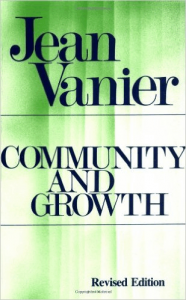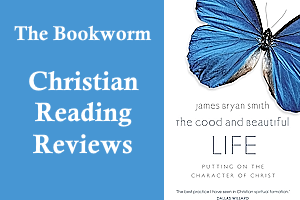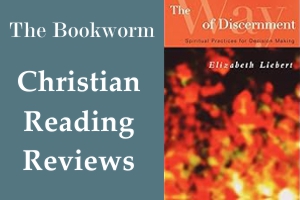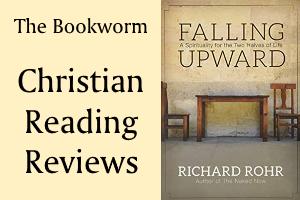Community and Growth
By: Jean Vanier
Paulist Press / 1991 / Paperback / 331 pages
Darton Longman and Todd / 2006 / Hardcover / 352 pages
Jean Vanier has authored some 30 books that reflect the many causes and concerns that have come together to shape his life. Educated in England, France and Canada, Vanier entered the Royal Naval College, in Dartmouth, England in 1942. Three years later he went to sea with the British Navy, later transferring to the Canadian Navy as an officer on the H.M.C.S. Magnificent. In 1950 he went to France to study philosophy and theology and earned a PhD from the Catholic University of Paris. His doctoral dissertation explored Aristotle’s understanding of what constitutes true happiness.
While in France, Vanier, founded L’Arche in 1964. “L’Arche” has become a global network of compassion, offering homes, personal care and support to people with developmental disabilities: www.larche.org.
Currently, l’Arche operates in some 150 communities in 35 countries on 5 continents. The mission of L’Arche is “…to make known the gifts of people with intellectual disabilities, working together toward a more human society.” Vanier continues to live as a member of the original L’Arche community, which is located in Trosly-Breuil, France.
His book, Community and Growth, serves as a kind of down-to-earth manual exploring the sacred potential of life in a faith community. It’s packed with Vanier’s reflections on the challenges and opportunities of living authentically within a Christian community. For folks who belong to a local church (or Cathedral) congregation, it may be helpful in reading this book to substitute Vanier’s use of the word “community,” with the word “church.”
Community and Growth speaks directly to the day to day realities and vulnerabilities of a church community. Originally written in French in 1979, various revised editions have been published in English over the years, the most recent in 2006.
Community is a sign that love is possible in a materialistic world where people so often either ignore or fight each other. It is a sign that we don’t need a lot of money to be happy–in fact, the opposite.
The idea of “community,” like the idea of “church” can mean different things to different people. For those who have struggled with the problems and frustrations of community and/or church-life, this book is essential reading. Vanier’s writing is neither theoretical prose, nor a lofty academic treatise. Instead, his ideas are grounded by wisdom and insights gleaned at the front lines, after years dedicated to serving those less fortunate than himself. Vanier writes that our faith communities should be places of acceptance and mission, marked by joy, compassion and celebration.
He refers to the “gift” and the “anti-gift” within community. Some see themselves as ‘saviours’. They may have the intelligence to understand and exploit the failings of community, but they can cause much hurt and damage, i.e. the anti-gift. Vanier suggests that the proper way to come into community is to feel at ease there, to be ready to serve, and at the same time, to be respectful of the existing ethos and traditions. The gift of being available to serve, writes Vanier, can be modeled and shared in love, from one person to another. It nourishes the thinking heart and feeling mind of the community.
Quotes from Community and Growth:
“Community is a sign that love is possible in a materialistic world where people so often either ignore or fight each other. It is a sign that we don’t need a lot of money to be happy–in fact, the opposite.”
“One of the marvelous things about community is that it enables us to welcome and help people in a way we couldn’t as individuals. When we pool our strength and share the work and responsibility, we can welcome many people, even those in deep distress, and perhaps help them find self-confidence and inner healing.”
“When people love each other, they are content with very little. When we have light and joy in our hearts, we don’t need material wealth. The most loving communities are often the poorest. If our own life is luxurious and wasteful, we can’t approach poor people. If we love people, we want to identify with them and share with them.”

“If people in a community live only on the level of the human, rational, legalistic and active aspects and symbols of their faith – which give cohesion, security and unity – there is a serious risk of their closing in on themselves and of gradually dying. If, however, their religious faith opens up, on the one hand to the mystical – that is, to an experience of the love of God present in the community and in the heart of each person – and, on the other hand, to what unifies all human beings, especially the poor, the vulnerable and the oppressed, they will then continue to grow in openness.”
“Old age is the most precious time of life, the one nearest eternity. There are two ways of growing old. There are old people who are anxious and bitter, living in the past and illusion, who criticize everything that goes on around them. Young people are repulsed by them; they are shut away in their sadness and loneliness, shriveled up in themselves. But there are also old people with a child’s heart, who have used their freedom from function and responsibility to find a new youth. They have the wonder of a child, but the wisdom of maturity as well. They have integrated their years of activity and so can live without being attached to power. Their freedom of heart and their acceptance of their limitations and weakness makes them people whose radiance illuminates the whole community. They are gentle and merciful, symbols of compassion and forgiveness. They become a community’s hidden treasures, sources of unity and life. They are true contemplatives at the heart of community.”
Gregg Finley


